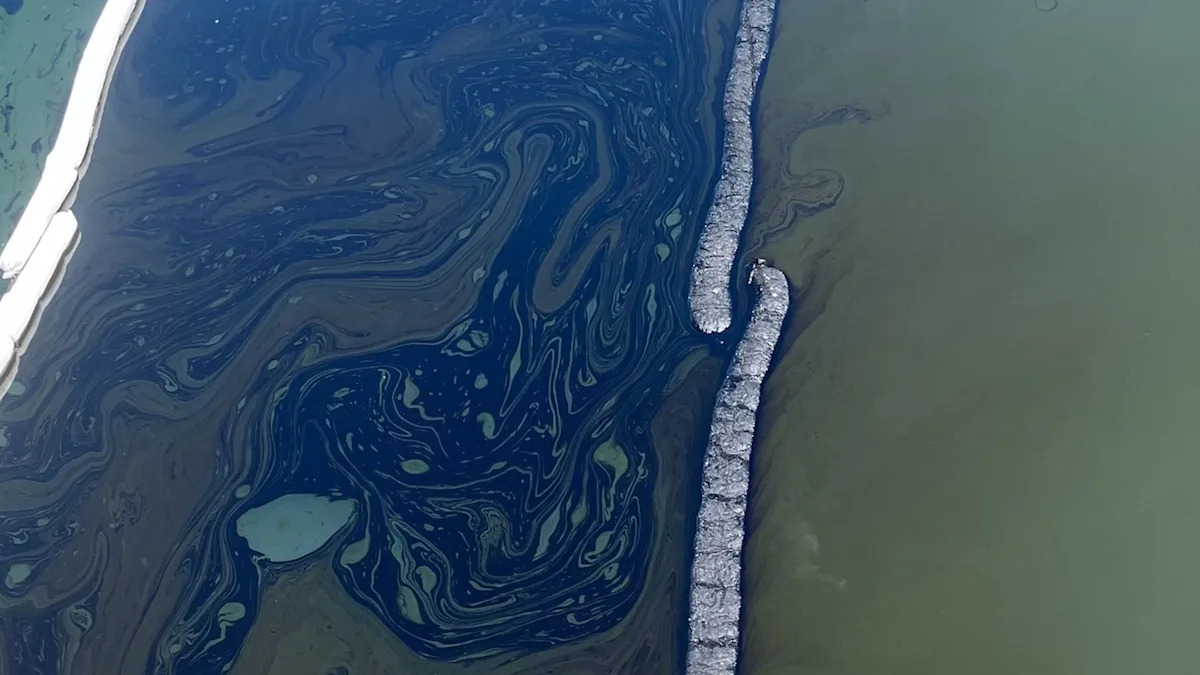The sight of a pelican — coated in a sticky black industrial residue and struggling on the popular Cairns Esplanade — turned an environmental disaster into a gut-wrenching crisis, according to the Cairns Post.
This followed a spill of 10,000 liters of toxic bitumen and kerosene from a Boral asphalt plant, contaminating the Trinity Inlet waterways and triggering distressed calls from residents to Far North Queensland Wildlife Rescue. The plight of this single bird became a powerful symbol of the community’s fight to protect its coastline.
What’s happening?
On Sept. 29, the petroleum products spilled into Smiths Creek after what the multinational company identified as a “bund safety valve failure.” The massive leak coated the shoreline and mangroves, creating a significant contamination zone near the Great Barrier Reef.
The affected pelican, seen multiple times along the Cairns Esplanade, repeatedly evaded wildlife rescuers. FNQ Wildlife Rescue said uncoordinated public attempts to help only scared the bird off, making capture more difficult for experts.
Why is this important?
The immediate impacts of spills are felt directly by local communities. Authorities issued a precautionary advisory against consuming seafood caught in the affected area, shaking public confidence in the food supply. The contamination was also at risk of spreading to the nearby Great Barrier Reef Marine Park.
For wildlife, the danger is apparent. Birds and other animals coated in oil lose their abilities to regulate body temperature, float, and fly, often leading to hypothermia or drowning. The toxic pollutants can also cause internal damage.
The sticky residue is especially damaging to the ecosystem’s crucial mangrove forests. The oil coats the tree roots, preventing the transport of oxygen and other gases and leading to the suffocation and death of the trees.
Industrial spills threaten not just wildlife but also coastal communities that rely on clean waterways for tourism and fishing. Every toxic discharge delays progress toward a cleaner environment for both people and animals. Regulatory bodies that are supposed to rein in oil and gas companies and protect nature are also often the victims of “corporate capture,” hindering necessary reforms and accountability.
What’s being done about it?
The pelican was finally located and captured Oct. 17, assessed by a vet and placed in the care of a wildlife rescuer. It was released back into the wild two weeks later. This specialized effort highlights the critical role of professional rescue teams.
Ultimately, stronger accountability and spill prevention systems are crucial to stop future tragedies. Local support of organizations fighting for more environmentally friendly corporate practices and dedicated wildlife rescue programs is essential for a safer world. You can also back broader efforts to divest from oil and gas by choosing greener transportation options and using less plastic.
Join our free newsletter for good news and useful tips, and don’t miss this cool list of easy ways to help yourself while helping the planet.
